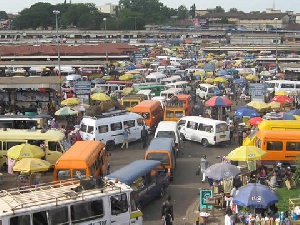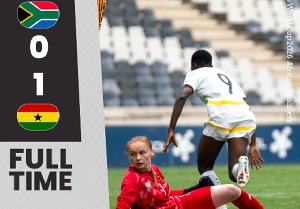A stakeholders’ workshop on the effective implementation and nationwide rollout of Road Toll Stickers (RTSs) has been held in Sunyani with an appeal to both commercial and private drivers to buy the stickers to save time and money.
The one day event dubbed “Advocacy for Effective Implementation of Nationwide RTSs” was organised by the Ghana Private Road Transport Union (GPRTU) Bechem Taxi Branch on Thursday for about 50 participants.
The participants included a staff of the Ghana Highway Authority (GHA), Implementation Team members from the Bechem Taxi Branch, representatives from the GPRTU Brong-Ahafo Regional Secretariat, stakeholders from other branches of GPRTU in the Region, as well as the media, some private road users and Mr Paschal Kaba, BUSAC Fund Project ‘Monitor’ for Brong-Ahafo.
In a broader sense, the workshop was designed to sensitise and educate both the public and private short distance road users throughout the country to patronise the sale of the RTSs for increased and guaranteed fund to ensure regular maintenance of the roads among other benefits to the drivers and the nation in general.
It was funded by the Business Sector Advocacy Challenge (BUSAC) Fund through Danish International Development Agency (DANIDA), the European Union (EU) and the United States Agency for International Development (USAID).
Speaking at the workshop, Mr. Seidu Mohammed, the Vice Chair of GPRTU Bechem Taxi Branch, appealed to both commercial and private drivers to patronise the stickers, announcing that drivers in all parts of the country could apply for it from any nearby office of the GHA.
He entreated particularly drivers who plied short distance routes to buy the stickers introduced by the Ghana Road Fund (GRF) through the GHA, its implementing agency because of its advantage of enhancing sales in the commercial transport business.
“Its advantages to especially we the commercial transport operators and drivers outweigh the disadvantages,” Mr. Mohammed emphasised.
Addressing the participants about the background and operations of the RTSs, Mr. John K. Arthur, the Regional Accountant of the GHA who also represented the GRF, said the RTSs was introduced in 2011 on a pilot basis successfully on the Nsawam road, saying that it was designed for “a period of six months to one year ... for private cars, buses and haulage trucks among others”.
Mr. Arthur indicated that the benefits of the RTSs included free flow of traffic on roads, avoidance of unnecessary delays to work and ensuring convenience for motorists and toll collectors.
He added that revenue could be accrued in advance for GRF, road maintenance programmes could be planned and executed on time whilst future projections and budget could also be made.
General News of Monday, 16 July 2018
Source: ghananewsagency.org
GPRTU holds stakeholders’ workshop on Road Toll Stickers
Entertainment












